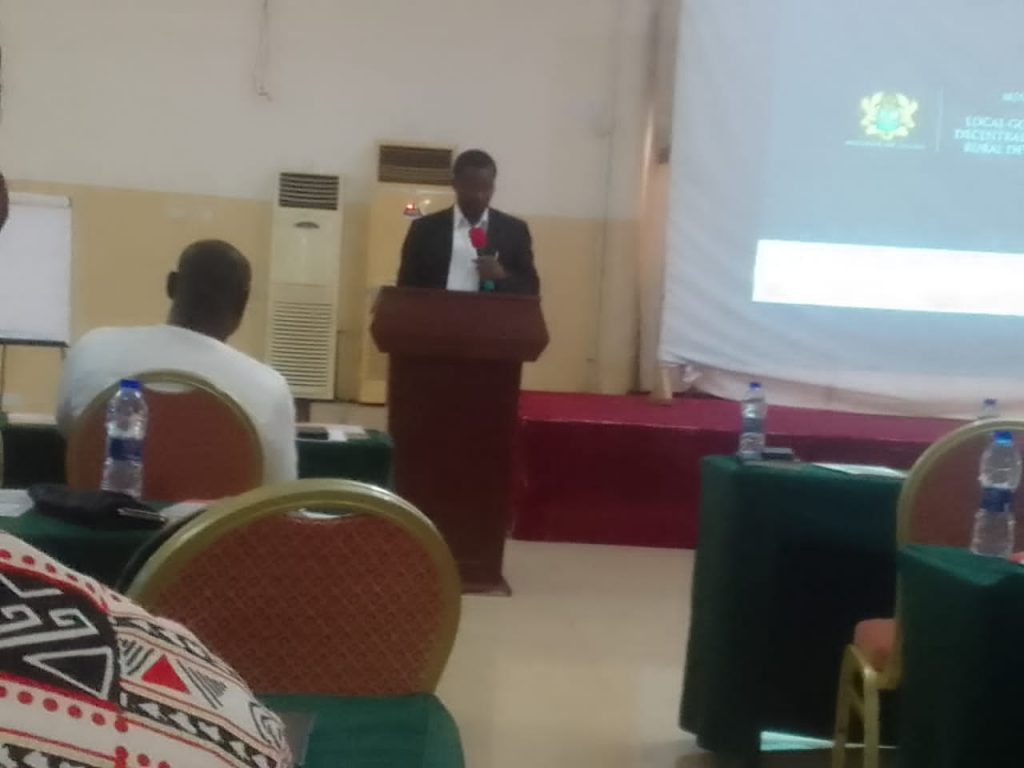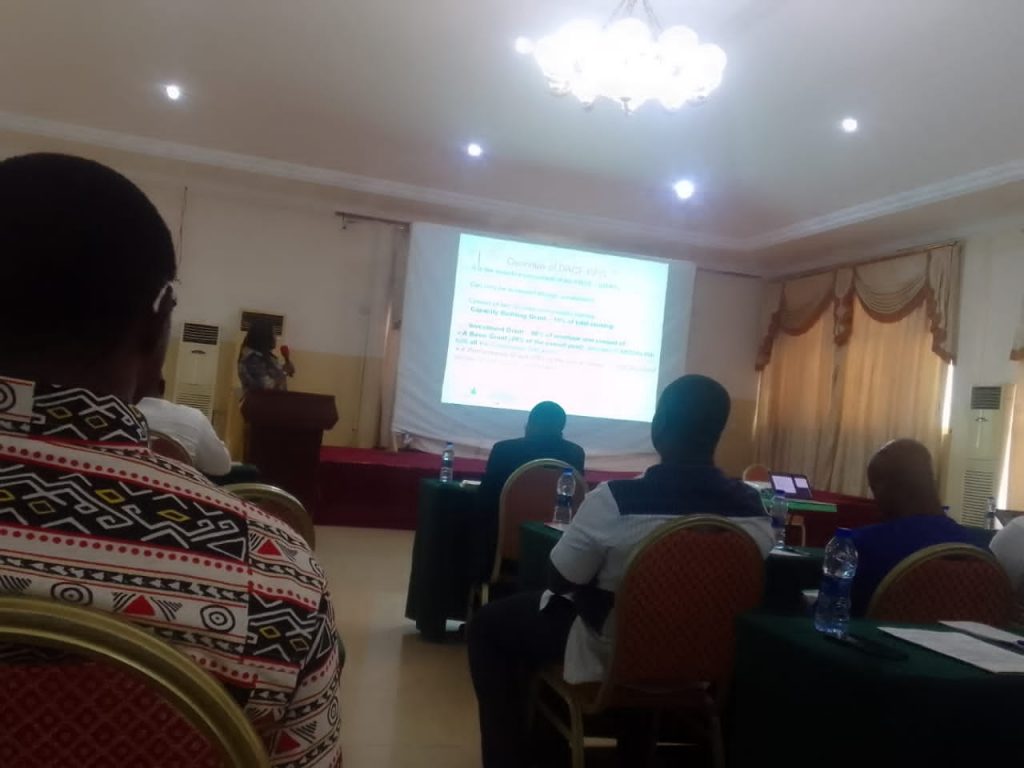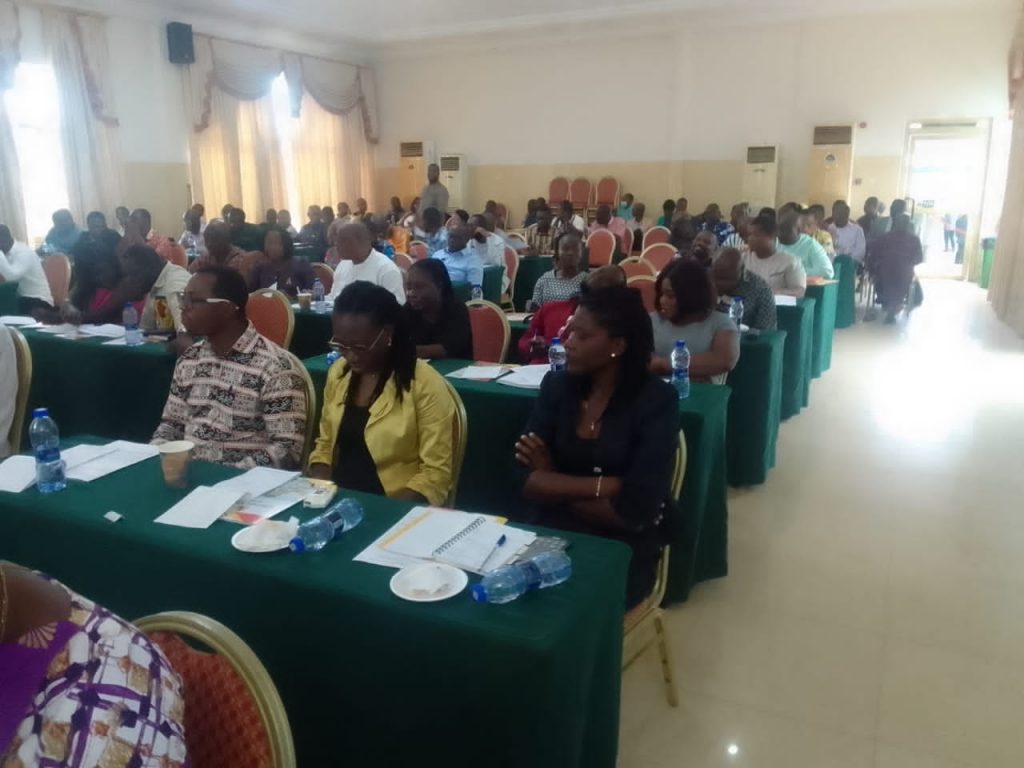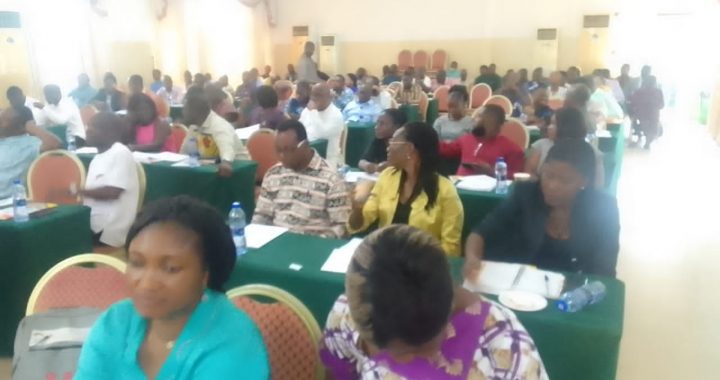DPAT, the District Assemblies’ Performance Assessment Tool, has been developed as an evaluative instrument designed to assess the performance of Metropolitan, Municipal, and District Assemblies (MMDAs). The primary objective of this assessment tool is to ensure that these MMDAs are effectively carrying out their responsibilities within the confines of the law while also adhering to the regulatory and policy frameworks outlined in various legal instruments governing their mandates.
On Thursday, August 24th, 2023, the Ministry of Local Government, Decentralization, and Rural Development organized a sensitization workshop concerning the 7th cycle of the District Assemblies’ Performance Assessment Tool (DPAT). This workshop was convened for all thirty-three (33) Municipal and District Assemblies situated in the Eastern Region and took place in Koforidua. The primary purpose of this workshop was to facilitate a comprehensive understanding of the assessment tool’s indicators among each Municipal and District Assembly, with the aim of identifying and addressing any capacity gaps.
During the workshop, Mr. John Donkor, representing the Eastern Regional Minister Hon. Seth Kwame Acheampong, extended a warm welcome to the attendees and emphasized the importance of effective collaboration and teamwork within the Assemblies to achieve success in future DPAT assessments. He further encouraged the Assemblies to maintain high standards of record-keeping and management.

Mr. John Donkor also highlighted that the Eastern Regional Coordinating Council had initiated a mock DPAT exercise to support the Assemblies in preparing for the upcoming DPAT assessment, underscoring the region’s commitment to bridging any existing gaps.
In a statement delivered on behalf of Hon. Dan Botwe, the Minister for Local Government, Decentralization, and Rural Development, Mr. Seth Kpasa, Director for the Local Government Division, emphasized the government’s commitment to decentralization through the District Assembly Common Fund. This fund plays a vital role in financing essential infrastructure projects, addressing key development challenges, and enhancing the capacities of local government institutions.

Madam Yvonne Bayitse, the Chief Accountant at the Controller and Accountant General Department (CAGD), underscored the significance of DPAT as a diagnostic tool for evaluating the success of Municipal District Assemblies (MDAs) and determining the allocation of government funds for community development within their respective districts. She emphasized that identifying and effectively addressing capacity gaps within the Assemblies would be instrumental in meeting the requirements of future DPAT assessments.
Mr. David Osei Owusu, Registrar of the Institute of Local Government Studies (ILGS), added that the identification and proper resolution of capacity-building gaps were paramount for each Assembly. He further emphasized that addressing these gaps would enhance the efficiency and effectiveness of the Assemblies in working towards their goals and objectives.

The sensitization workshop on the 7th cycle of the District Assemblies’ Performance Assessment Tool (DPAT) serves as a clear testament to the commitment of both the Ministry of Local Government, Decentralization, and Rural Development, as well as the Eastern Regional Coordinating Council, in ensuring the continued improvement and effectiveness of Metropolitan, Municipal, and District Assemblies (MMDAs). By promoting a deeper understanding of DPAT indicators, fostering unity, and addressing capacity gaps, the workshop has paved the way for enhanced performance and accountability among these crucial local government entities.
As the Assemblies embark on their journey towards future DPAT assessments, the emphasis on teamwork, high standards of record-keeping, and the proactive resolution of capacity-building gaps will undoubtedly contribute to their success in delivering essential services to their communities and advancing the decentralization agenda.
The collaboration between government agencies, local authorities, and educational institutions, as demonstrated in this workshop, reflects a shared commitment to local development and governance. Through such collective efforts, we can look forward to more efficient, responsive, and accountable Metropolitan, Municipal, and District Assemblies that play a pivotal role in the socio-economic progress of our regions and nation as a whole.

